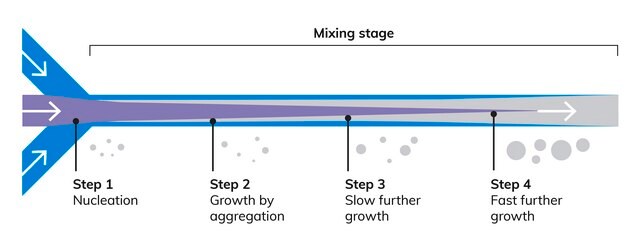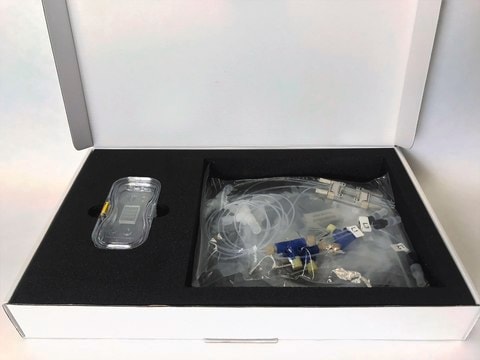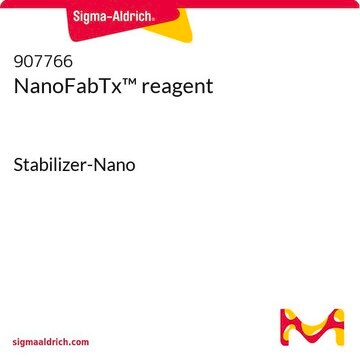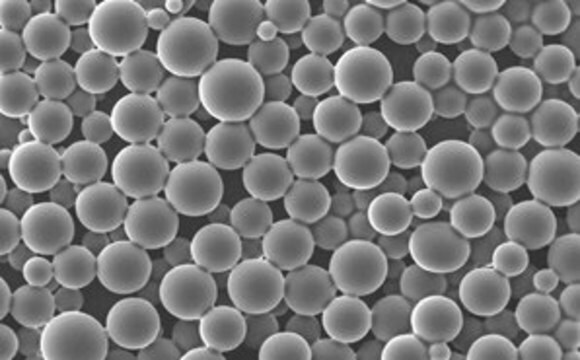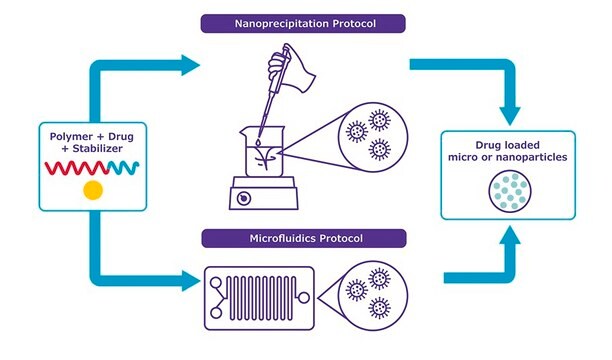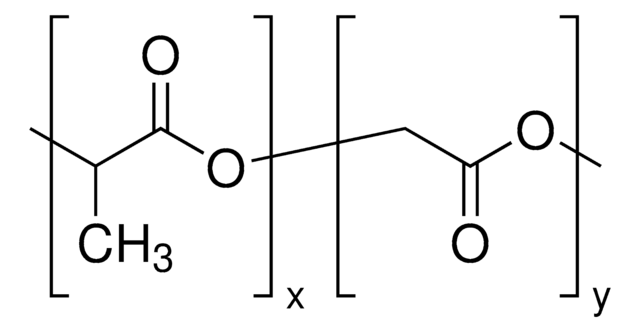917796
NanoFabTx™ PEG-PLGA drug formulation screening kit
for synthesis of PEGylated nanoparticles
Sinónimos:
NanoFabTx reagent kit, PEG-PLGA nanoparticles
About This Item
Productos recomendados
description
Drug loading screening kit, for synthesis of PEGylated PLGA nanoparticles
Kit components :
PEGPLGA-50L(912808-500mg)
PEGPLGA-75L(913049-500mg)
PEGPLGA-50H (915955-500mg)
PEGPLGA-75H (915718-500mg)
Stabilizer-Nano (907766-5g)
Quality Level
application(s)
advanced drug delivery
storage temp.
2-8°C
General description
- A Nanoprecipitation protocol to prepare drug-encapsulated nanoparticles in standard laboratory glassware.
- A Microfluidics protocol using commercial platforms or syringe pumps.
Application
Features and Benefits
- Requires minimal laboratory setup
- Optimized protocols with step-by-step instructions for either nanoprecipitation or microfluidics-based synthesis
- Yields specifically sized, low polydispersity biodegradable, PEGylated PLGA nanoparticles from 50 nm to 350 nm in size
- Maximizes the encapsulation of hydrophobic drugs
- Four different PEGylated PLGAs are included
Legal Information
Related product
Storage Class
10 - Combustible liquids
Elija entre una de las versiones más recientes:
Certificados de análisis (COA)
Lo sentimos, en este momento no disponemos de COAs para este producto en línea.
Si necesita más asistencia, póngase en contacto con Atención al cliente
¿Ya tiene este producto?
Encuentre la documentación para los productos que ha comprado recientemente en la Biblioteca de documentos.
Nuestro equipo de científicos tiene experiencia en todas las áreas de investigación: Ciencias de la vida, Ciencia de los materiales, Síntesis química, Cromatografía, Analítica y muchas otras.
Póngase en contacto con el Servicio técnico